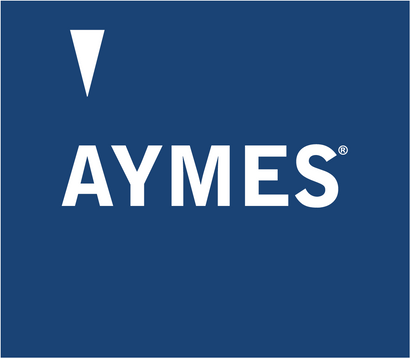Renal dietitian, Ruth Kander, shares her thoughts on why protein is an important consideration for those patients with kidney disease.
The different types of protein
Protein is an essential macronutrient required for the growth and repair of cell structures and body organs. Proteins are present in a variety of foods in varying quantities. Animal proteins such as meat, chicken, fish, eggs, and dairy contain the most concentrated forms of protein, have been known to be complete in amino acid profile and are often called high biological value proteins. Plant proteins such as vegetables, beans and lentils contain smaller quantities of proteins and are sometimes considered a lower class of protein that have a lower quality amino acid profile.1 It is, therefore, essential for patients who follow a plant-based diet to consume a wide variety of foods to achieve the full complement of amino acids. In current times, research suggests that plant proteins are not lower in biological value, they are just a different type of protein that may be healthier for us.2 It can be more challenging, however, to get all the necessary nutrients for health when following a plant-based diet. Other forms of proteins such as soy, tofu and seitan contain higher amounts of protein per portion of foods and are healthy alternatives to animal proteins for those wanting to work towards a more plant-based diet.3
Protein in the different stages of kidney disease
Protein intakes play a central role in the nutrition of the kidney patient journey. Chronic kidney disease has five stages. The first being the beginning of the patient journey with mild reduction in kidney function and stage 5 being the time when conservative management, renal replacement therapy such as dialysis, or a transplant is required.
In the first stages 1-2, it is recommended to have a moderate protein diet as per the general population. That means that a diet containing 0.8g/kg of body weight each day is sufficient.4 This is based on a healthy weight range and BMI 18-25. If a person is over or underweight, then this should be adjusted, however there is no specific guidance on this. There is currently no definitive clinical research on the quantity or type of protein that may help delay or halt chronic kidney disease, however, many experts are recommending having a mixture of plant and animal proteins.5-12
In stages 3-5, non-dialysis, it has been suggested in several papers9,11,12 that a lower protein diet based on plant proteins can be helpful in stabilising renal function in several renal conditions. Currently, it is not known which specific kidney conditions and there is no concrete evidence for a plant-based diet. The guidelines from the Kidney Outcome and Quality Initiative (KDOQI) 2020 guidelines4 suggest there is no research to identify if plant or animal protein is superior, however, they do go on to recommend a lower protein diet.
In stage 5, when patients are on haemodialysis or peritoneal dialysis, a higher protein diet is recommended. KDOQI4 recommend that haemodialysis patients should have 1-1.2g /kg of body weight per day. There are no specific recommendations about adjustments if a patient is over or under weight. In fact, the guidance for the dialysis patient is very limited. The British Dietetic Association Renal Group guidance14 focuses on protein and energy in dialysis patients only. The make a similar recommendation to the KDOQI guidance and outline the reasons for the need for increased protein intakes.
Patients on haemodialysis and peritoneal dialysis require higher protein intakes then other types of kidney patients for a multitude of reasons. One of the main reasons is due to the loss of proteins and or amino acids in the dialysis process.15,16 The evidence for this is relatively old and there is currently not up to date clinical research to guide practice. Other reasons include that the process of dialysis is said to induce increased metabolic requirements, coupled with ongoing increased inflammatory processes and the release of cytokines causing an increase in sarcopenia.17
Dialysis patients also often need higher protein intakes if they have other comorbidities such as liver disease or diabetes.18 Patients who follow plant-based diets such as south Asian Indians, or people on vegan diets for ethical reasons, will find it a little more challenging to get enough protein. In addition, dialysis patients often have poor appetites which can limit protein intakes.19 Many patients may be consuming enough energy and could even have a BMI >30 but this doesn’t mean that they are getting sufficient protein intakes.
Summary of reasons for higher protein requirements in dialysis patients:

Factors contributing to reduced dietary intakes in patients with renal disease:
- Frailty and poor nutrition
- Socioeconomic issues; financial constraints, housing, shopping and cooking
- Social isolation and depression
- Tiredness and exhaustion associated with attending dialysis and hospital appointments
- Chronic illness and feeling generally unwell
- Hospital admissions
Dietetic assessment of patients with kidney disease
When evaluating dialysis patients as renal dietitian, we look at the patient in a global sense. This can give us an idea of the nutritional status of the patient. Some dialysis units measure subjective global assessment on a yearly or 6 monthly basis and this is recommended.20 Some dialysis units will measure normalised protein catabolic rate (nPCR) which is a complex calculation measured with the dialysis parameters and blood tests.19 This isn’t always reliable measure and if the patient isn’t in a neutral nitrogen neutral balance it can lead to over or underestimation of protein intakes in dialysis patients.19 The assessment process recommends assessing protein intakes by looking at a combination of parameters such as electrolyte levels, urea levels, albumin, total protein, C reactive protein, total adequacy scores (KT/V), weight changes and most importantly talking to the patient or their relatives or carers!20 Although serum albumin levels are not a nutritional marker as such, low levels have been associated with poorer outcomes and a higher mortality rate.21
Improving protein intake in the renal patient
Having a higher protein diet for some patients is easier said than done! Dialysis patients are known for their overall reduced dietary intakes. Patients often feel that they are unable to meet requirements due to dietary restrictions which are often self-imposed. The long days of treatment that the haemodialysis patient endures can often mean they eat very little on several days of the week.
- Start with food first advice and general high energy and high protein dietary advice.
- If patients are meeting energy requirements but lacking in protein, suggest some easy high protein snacks that can be incorporated throughout the day.
- For patients who continue to struggle with improving their protein intakes through dietary means alone, a high protein supplement should be considered. Low volume options may be better tolerated if poor appetite is a problem.
It is important to ensure on-going support and care by the medical and dietetic team which can help to improve nutritional intakes in dialysis patients.22-25
- ◄References:
-
- Bakaloudi DR, Halloran A, Rippin HL, Oikonomidou AC, Dardavesis TI, Williams J, et al. Intake and adequacy of the vegan diet. A systematic review of the evidence. Clinical Nutrition. 2020 Dec;40(5).
- Ko GJ, Obi Y, Tortorici AR, Kalantar-Zadeh K. Dietary protein intake and chronic kidney disease. Current Opinion in Clinical Nutrition and Metabolic Care [Internet]. 2017 Jan;20(1):77–85. Available from: https://www.ncbi.nlm.nih.gov/pmc/articles/PMC5962279/.
- Mariotti F, Gardner CD. Dietary Protein and Amino Acids in Vegetarian Diets-A Review. Nutrients [Internet]. 2019;11(11):E2661. Available from: https://www.ncbi.nlm.nih.gov/pubmed/31690027
- Ikizler TA, Burrowes JD, Byham-Gray LD, Campbell KL, Carrero J-J, Chan W, et al. KDOQI Clinical Practice Guideline for Nutrition in CKD: 2020 Update. American Journal of Kidney Diseases. 2020 Sep;76(3):S1–107.
- Ash S, Campbell K, Bogard J, Millichamp A. Nutrition Prescription to Achieve Positive Outcomes in Chronic Kidney Disease: A Systematic Review. Nutrients [Internet]. 2014 Jan 22 [cited 2019 Dec 19];6(1):416–51. Available from: https://www.ncbi.nlm.nih.gov/pmc/articles/PMC3916870/
- Chen Y, Wu J, Yu D, Liu M. Plant or animal-based or PLADO diets: Which should chronic kidney disease patients choose? Journal of Renal Nutrition [Internet]. 2022 Jul 6 [cited 2022 Sep 14]; Available from: https://www.sciencedirect.com/science/article/pii/S1051227622001285
- Adair KE, Bowden RG. Ameliorating Chronic Kidney Disease Using a Whole Food Plant-Based Diet. Nutrients. 2020 Apr 6;12(4):1007.
- Joshi S, Hashmi S, Shah S, Kalantar-Zadeh K. Plant-based diets for prevention and management of chronic kidney disease. Current Opinion in Nephrology and Hypertension. 2020 Jan;29(1):16–21.
- Gluba-Brzózka A, Franczyk B, Rysz J. Vegetarian Diet in Chronic Kidney Disease—A Friend or Foe. Nutrients. 2017 Apr 10;9(4):374.
- Naber T, Purohit S. Chronic Kidney Disease: Role of Diet for a Reduction in the Severity of the Disease. Nutrients. 2021 Sep 19;13(9):3277.
- Cases A, Cigarrán-Guldrís S, Mas S, Gonzalez-Parra E. Vegetable-Based Diets for Chronic Kidney Disease? It Is Time to Reconsider. Nutrients. 2019 Jun 4;11(6):1263.
- Chauveau P, Koppe L, Combe C, Lasseur C, Trolonge S, Aparicio M. Vegetarian diets and chronic kidney disease. Nephrology Dialysis Transplantation. 2018 Jul 5;34(2):199–207.
- Naylor HL, Jackson H, Walker GH, Macafee S, Magee K, Hooper L, et al. British Dietetic Association evidence-based guidelines for the protein requirements of adults undergoing maintenance haemodialysis or peritoneal dialysis. Journal of Human Nutrition and Dietetics. 2013 Jun 4;26(4):315–28.
- Slee A, Reid J. Disease-related malnutrition in chronic kidney disease. Current Opinion in Clinical Nutrition & Metabolic Care. 2022 Mar 7;Publish Ahead of Print.
- Blumenkrantz MJ, Gahl GM, Kopple JD, Kamdar AV, Jones MR, Kessel M, et al. Protein losses during peritoneal dialysis. Kidney International. 1981 Apr;19(4):593–602.
- Alp Iktzler T, Flakoll P, Parker R, Hakim R. Amino acid and albumin losses during hemodialysis. Kidney International [Internet]. 1994;46:830–7. Available from: https://www.kidney-international.org/article/S0085-2538(15)58620-1/pdf
- Hanna Ramy M, Ghobry L, Wassef O, Rhee Connie M, Kalantar-Zadeh K. A Practical Approach to Nutrition, Protein-Energy Wasting, Sarcopenia, and Cachexia in Patients with Chronic Kidney Disease. Blood Purification. 2019 Dec 18;49(1-2):202–11.
- Burkhart J. UpToDate [Internet]. www.uptodate.com. 2022 [cited 2022 Sep 16]. Available from: https://www.uptodate.com/contents/nutritional-status-and-protein-intake-in-peritoneal-dialysis-patients/print?search=protein%20in%20peritoneal%20dialysis&source=search_result&selectedTitle=1~150&usage_type=default&display_rank=1
- Qunibi WY. UpToDate [Internet]. www.uptodate.com. 2021 [cited 2022 Oct 30]. Available from: https://www.uptodate.com/contents/protein-intake-in-maintenance-hemodialysis-patients?search=haemodialysis%20and%20protein&source=search_result&selectedTitle=2~150&usage_type=default&display_rank=2
- Bansal S, Cho M, Beddhu S. UpToDate [Internet]. www.uptodate.com. 2020 [cited 2022 Oct 30]. Available from: https://www.uptodate.com/contents/assessment-of-nutritional-status-in-hemodialysis-patients?search=protein%20in%20dialysis&topicRef=1841&source=see_link
- Shinaberger CS, Kilpatrick RD, Regidor DL, McAllister CJ, Greenland S, Kopple JD, et al. Longitudinal Associations Between Dietary Protein Intake and Survival in Hemodialysis Patients. American Journal of Kidney Diseases. 2006 Jul;48(1):37–49.
- Chan W. Chronic Kidney Disease and Nutrition Support. Nutrition in Clinical Practice. 2021 Mar 18;36(2):312–30.
- Caglar K, Fedje L, Dimmitt R, Hakim RM, Shyr Y, Ikizler TA. Therapeutic effects of oral nutritional supplementation during hemodialysis. Kidney International [Internet]. 2002 Sep 1 [cited 2022 Sep 16];62(3):1054–9. Available from: https://www.kidney-international.org/article/S0085-2538(15)48643-0/fulltext
- Wright M, Southcott E, MacLaughlin H, Wineberg S. Clinical practice guideline on undernutrition in chronic kidney disease. BMC Nephrology [Internet]. 2019 Oct 16;20(1). Available from: https://renal.org/wp-content/uploads/2019/06/FINAL-Nutrition-guideline-June-2019.pdf
- Ravel VA, Molnar MZ, Streja E, Kim JC, Victoroff A, Jing J, et al. Low Protein Nitrogen Appearance as a Surrogate of Low Dietary Protein Intake Is Associated with Higher All-Cause Mortality in Maintenance Hemodialysis Patients. The Journal of Nutrition [Internet]. 2013 May 22 [cited 2022 Sep 16];143(7):1084–92. Available from: https://www.ncbi.nlm.nih.gov/pmc/articles/PMC3681544/pdf/nut1431084.pdf




